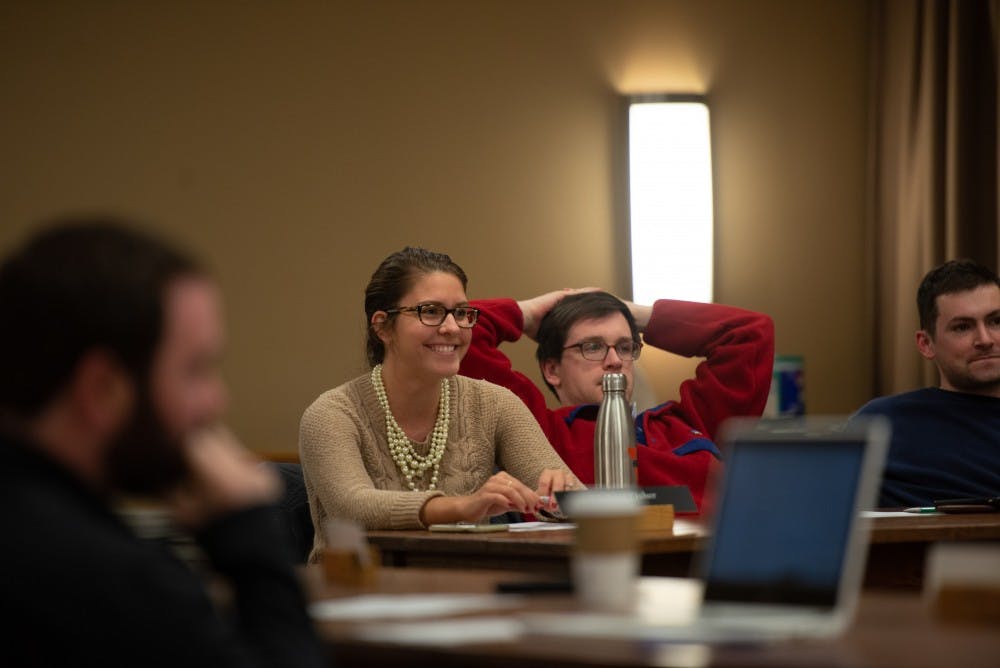The Honor Committee approved changing the name of the Contributory Mental Disorder process to Contributory Health Impairment in a meeting Sunday. The change is intended to make the terminology more inclusive by acknowledging that the current policy also allows for conditions that are not explicitly mental, such as a brain tumor, but could still contribute to committing Honor offenses.
The CMD is a procedure that allows students to request a psychological evaluation prior to moving through Honor proceedings to determine if a mental health condition contributed to the commission of the offense, which is typically overseen by the Office of the Dean of Students and conducted by Student Health or the University’s Counseling and Psychological Services.
“Potentially changing the name from CMD to CHI, while seemingly inconsequential, would be a step in the right direction in changing how these things are referred to outside of Honor,” Lindsay Fisher, a Law student and co-chair of the policies and procedures subcommittee, said in a meeting on Oct. 14. “The thinking around the terminology in terms of how we name these sort of things has changed over time.”
The change will affect both the bylaws and the procedures, though the change is only nominal — the definition of the term and use of the procedure will remain the same in practice.
However, the Committee has approved a timeline in which students in the process will have to adhere to if their CHI — formerly CMD — claim is to be considered in an Honor trial. The Committee has also approved the removal of the ‘Admission of Act’ portion of the policy which will remove the requirement that an accused student admit an Act, or admit guilt to an Honor offense, before being assessed for a CHI.
These changes will take effect Oct. 29, and the Committee will have to re-approve them on March 3, 2019. If this second vote fails, all of the changes will be removed and the bylaws will revert back to their original version.
“You can have a condition that would qualify for this procedure that's not necessarily mental in nature,” Medicine student and Honor Chair Ory Streeter said at the Oct. 14 meeting. “[This is a] broader term used to capture that.”
The Committee also discussed the defacement of an open letter from Hispanic and Latinx U.Va. students. The open letter was published through Google Docs to the University community on Oct. 15 calling for increased recruitment of Hispanic/Latinx faculty, the availability of Spanish-translated documents for parents and students and tours in Spanish and Portuguese for potential applicants and their families, among other items.
Two unknown persons edited the letter online using racial slurs and hate speech directed towards Latinx and other minority students. University Police are investigating the incident, with students being encouraged by administration to provide tips if they are aware of any relevant information.
“It was a pretty terrible thing to have happen to that organization for all of the hard work they are doing,” Streeter said at Sunday’s meeting. “The executive committee was signed on from the beginning as a show of support.”
The Committee also discussed the event budget for representatives from each school in the University. The money for event planning comes from the committee’s endowment, which is handled by the University’s Alumni Association and is funded by donors and is meant to be used for outreach to the student body.
Each of the 12 schools has about $1,400 for events, with $3,500 available to the College of Arts and Sciences, according to Streeter. Currently, each school’s Honor representatives use event funding to hold outreach events such as coffee and doughnut breaks in order to meet the students in each school and increase awareness of the Honor system.
“We’d love to expend all of this money [on outreach],” Streeter said.







